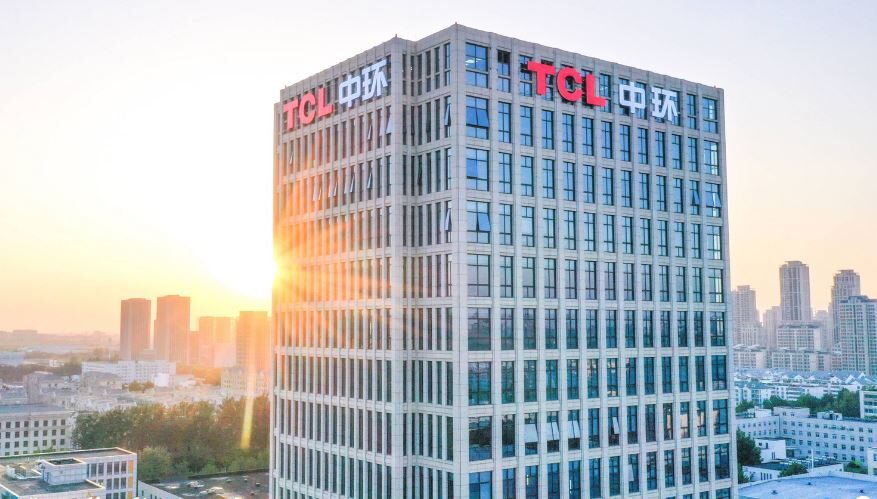Over the coming decade, the global solar market is in line for 138% growth, from 395 GW at the end of 2017 to 942 GW at the end of 2027, shows a new outlook produced by Fitch Solutions Macro Research – a unit of Fitch Group.
Despite Beijing’s reductions to its PV feed-in tariffs and capacity allowances, China will continue to dominate the global solar market, adding 227 GW over the coming decade.
However, Fitch notes that the Chinese policy change has led it to revise down its original forecast for solar capacity growth in China from a total of 270 GW between 2017 and 2027, to 227 GW – the figure that will take total solar power capacity in China to 357 GW by 2027.
This means that while solar subsidy cuts in the market will result in a YoY slowdown relative to the record year of 2017, when a total of 53 GW of solar capacity was added, China will add an average 23 GW per year between 2018 and 2027.
China has already sailed past its 2020 target of 105 GW of cumulative installed PV capacity, and is now reported to consider revising its target upwards to 210-270 GW.
If raised to 210 GW, the target will leave room for just 20-25 GW per year from next year to 2020, which aligns with Fitch’s forecast. However, according to PV Info Link analysts, such a target would not give much of a lift to local demand.
Overall, Asian will dominate solar power sector expansion over the coming decade: it is forecast to comprise 60% of global solar capacity in 2027, led by China and India. According to the latest statistics, India installed 4.9 GW of solar, surpassing the United States, which installed 4.7 GW, to become the second largest solar market in the first half of 2018, second only to China’s 24.3 GW.
Japan, Taiwan and South Korea are also set to be among the top 10 fastest expanding solar markets globally over the 10-year forecast period, Fitch says.
Although some of the lowest solar power capacity bids registered to date have been submitted in the Middle East, such as a new record low of $0.024/kWh seen in Dubai this week, Fitch underlines that the Middle East will remain one of the smallest regional solar power markets in the world, as it is primarily focused more on leveraging abundant natural gas reserves than deploying renewables capacity.
Chinese demand slowdown = pressure on equipment manufacturers
A slowdown in solar growth in China, coupled with solar equipment import tariffs on Chinese exports to the United States and India, will squeeze Chinese solar equipment manufacturers.
Fitch believes this will have substantial ramifications for the global solar power market, as Chinese solar manufacturers face reduced demand for PV panels, which will come on top of the existing oversupply as a result of the introduction of tariffs in the United States.
India’s 25% safeguard duty is expected to add fuel to the fire, shrinking the excess to China's largest solar panel export market in 2017. Meanwhile, increasing project costs will threaten the viability of several of India's record-breaking auctioned solar projects and put India’s solar growth under pressure – particularly in the near term, says Fitch.
The recently announced statistics from China’s Photovoltaic Industry Association for the first nine months of the year showed a distinct difference in trading conditions before and after the May 31 policy change, with a drastic drop in prices and output decrease across all market segments.
New horizons
On the bright side, the resulting oversupply in solar panels will help suppress solar panel prices in alternative solar power markets, boosting solar capacity uptake. According to Fitch, the glut in solar panels will make it possible for developing and emerging solar markets to tap into cheaper solar.
Consequently, it expects that a total of 63 markets will add more than 100 MW of solar capacity over the coming decade.
This content is protected by copyright and may not be reused. If you want to cooperate with us and would like to reuse some of our content, please contact: editors@pv-magazine.com.




So these guys are predicting that over the next decade the global market will be just half the size of what was erected in 2017 and also the markt in China will come down from 50+GW to 22GW over the next decade …
With regard to marketvolume for sub 20 us-cent/wp ASP we would be talking about a 10 billion usd market – worldwide …
Realy ???
Sorry I just have to respond to this message. The solar industry has never had a year of reduction in installations. Maybe this year will be the first but one cannot expect that to be a trend with ever declining prices.
The view that the world will develop a meagre 550 GW of solar in the coming 10 years is to say the least stunning. The least it should be 1000 GW. Already the predictions of Chinese demand for this year are on the very conservative side, let alone for the coming decade.
My expectation is that is the coming 10 years 1250-1500 GW will be installed. (Growth rate of 5-10% a year)
This Fitch “forecast” is so preposterous that pv-magazine shouldn’t bother to quote it. On current growth trajectories not 552GW but more than 2000GW will be added. And why such bean counting? Why 552GW instead of 500GW or 600GW?? Such forecasting is a joke.
Fortunately the actual producers don’ believe this Eeyore scenario and are buying new equipment in anticipation of rising demand.
To think they want $1,415.00 for this rubbish! A quick and dirty simple extrapolation using an Excel spreadsheet (or LibreOffice Calc), starting with 100 GW of capacity added in 2018 and growing the amount added each year by a very modest 5%, results in more than 1,657 GW of cumulative capacity by the end of 2027. The capacity added in 2027 under that scenario would be over 155 GW.
Actual PV module manufacturing capacity doubled every two years up to 2017 (ACGR 41.5%). Assuming that it takes twice as long to double manufacturing capacity from 2018 onward, capacity added by 2027 would be over 475 GW and the cumulative installed capacity would be 2,861 GW.
The actual outcome will probably be somewhere between those two extrapolations.
Here we are at the beginning of 2022 and this projection for 2027 has already been surpassed! According to data from IRENA, the amount of capacity added between 2019 and 2020 was 144,490 MW taking the total cumulative global capacity to 860,175 MW. If the exact amount of capacity was added between 2020 and 2021 the cumulative total would end up at 1,004,665 MW compared to the 942 GW at the end of 2027 from outlook produced by Fitch Solutions Macro Research. Looking back at the projections I did back in 2019, it looks like things are on track to meet the high side of my projections.